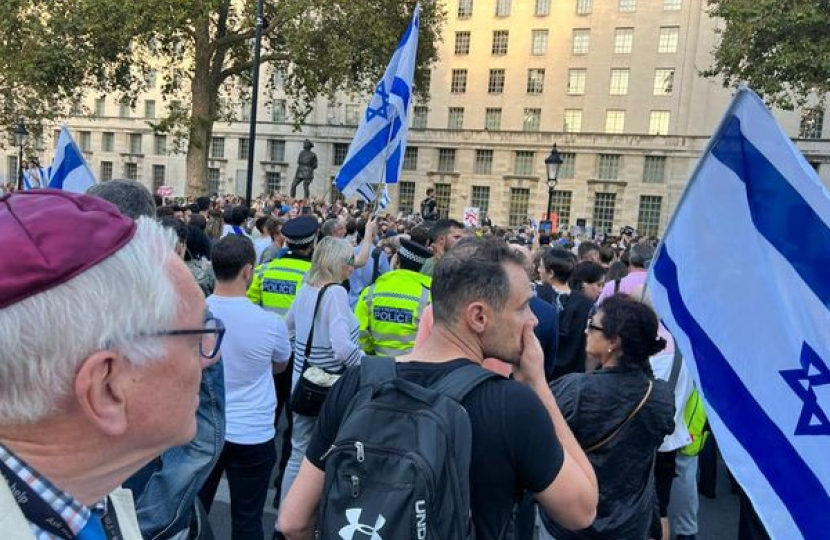
The awful news on Saturday was of the unprecedented attack by the Hamas terrorists on Jews in Israel. The purposes must have included wishing to draw Israeli Defence Forces into Gaza after terrifying attacks on buildings in the overcrowded Strip. The population of over two million live together in an area equivalent to the Isle of Wight.
I explained to a constituent that in any previous week, I would have talked of the debate about the ways of Benjamin Netanyahu and his controversial association with people regarded in Israel as extreme. Not this week. On Monday I joined the Jewish and Israeli vigil by Downing Street in Whitehall.
When first serving as a member of parliament, I said publicly I intended to visit Israel and the West Bank with the Israelis and later with the Palestine Liberation Organisation. Neither side were happy; I know sometimes it is necessary to understand a series of problems by observation on the ground. Since then, Hamas has grown. Its history is available on wiki.
On Tuesday morning a serious Dutch television crew interviewed me. Their theme was the apparent wave of early retirement from political service because the strains were too great for many MPs in the Netherlands. What were my comments?
Were social media pressures part of it? I suggested it is not necessary to read everything all the time. It is not necessary always to respond. When someone seems keen of rapid-fire email exchanges, wait a time and consider stating that amiable disagreement can be all right.
The question came up about our differing election systems. They have national proportional representation with many parties; we have first-past-the post. They put together a coalition after each election; our main parties do it internally, before the election.
They asked why someone who votes for an alternative party is not represented. I described that as a misunderstanding. Everyone is represented by the constituency MP, regardless of party. Under their system, no one is represented by a constituency MP.
Without saying what they should do, I illustrated constituency advantages of our system, including the cross-party campaigns for the Goring Gap, for the local hospital and its vital services in up-dated buildings, for schools and colleges, and for fair play for residential leaseholders: all this is additional to our quiet private endeavours for individuals, households and community causes.
Friendly restraint prevents me giving a series of comments on the more combative remarks in the Labour’s leader’s conference speech. I keep thoughts for the general election. When I do speak, I shall start with what we agree on, what we have cooperated on.
Successful political service gives choices, expands cooperation and allows people and parties to accept that victory and defeat are not absolutes and do not last forever. I am pleased when Sir Keir uses words and principles familiar to readers of these articles.
Somewhere I have a selection of kind remarks across the apparent gaps between political alternatives. ’While I am not a Conservative voter, I have great respect for you as a constituency MP.’
‘Your constituents must be proud to have a member who knows when it is time to stand up and be counted.’ and ‘I live in your Worthing constituency but have never actually voted for you. That may change at the next election.’
Committed moderate Liberal Democrat and Labour colleagues may have received similar messages. They are encouragement to continue standing for election. Sir Keir, Sir Ed Davey for the Lib Dems and I agree the point of politics is to do good, to avoid unnecessary war, to build and to share prosperity, opportunity and well-being.
For decades it has been noteworthy that the democracy in the Middle East is Israel. If and when relative peace can be restored, let us hope their democratic process will be more successful.




